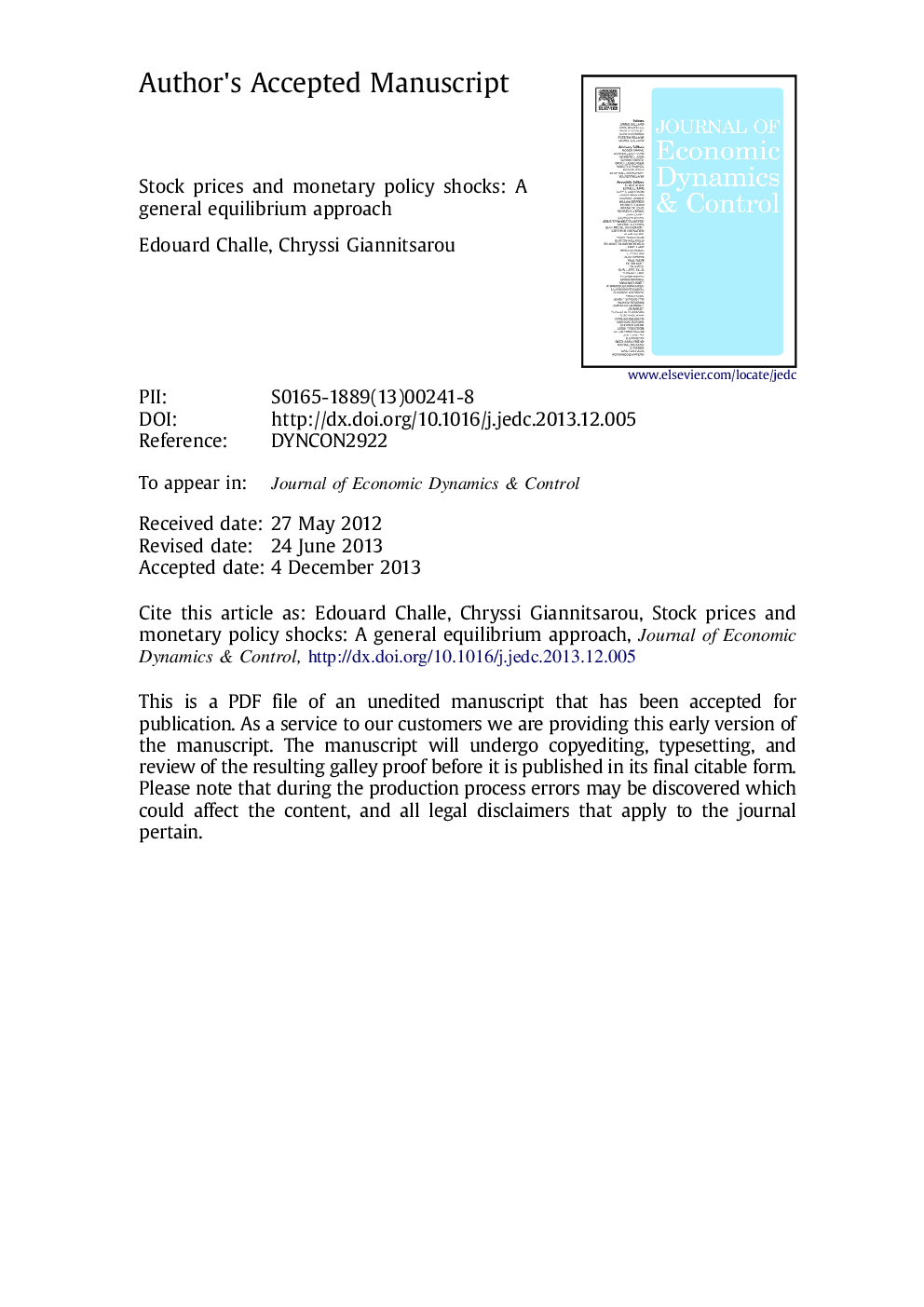| Article ID | Journal | Published Year | Pages | File Type |
|---|---|---|---|---|
| 5098548 | Journal of Economic Dynamics and Control | 2014 | 37 Pages |
Abstract
Empirical literature documents that unexpected changes in the nominal interest rates have a significant effect on real stock prices: a 100-basis point increase in the nominal interest rate is associated with an immediate decrease in broad real stock indices that may range from 2.2 to 9%, followed by a gradual decay as real stock prices revert towards their long-run expected value. We assess the ability of a general equilibrium New Keynesian asset-pricing model to account for these facts. We consider a production economy with elastic labor supply, staggered price and wage setting, as well as time-varying risk aversion through habit formation. We find that the model predicts a stock market response to policy shocks that matches empirical estimates, both qualitatively and quantitatively. Our findings are robust to a range of variations and parametrizations of the model.
Keywords
Related Topics
Physical Sciences and Engineering
Mathematics
Control and Optimization
Authors
Edouard Challe, Chryssi Giannitsarou,
